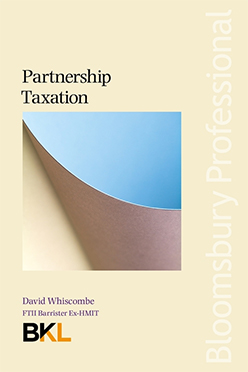I started in tax as a direct-entry tax inspector with the former Inland Revenue in 1976. Been in the private sector since 1987 including 27 years leading the tax practice at BKL. It was there that I developed a particular interest and expertise in partnership taxation. In particular I believe that BKL were pioneers among professional firms in structuring as a partnership of limited companies, which we did as early as 1999.
Introduction of LLPs was a big change – initially brought in as a vehicle for large professional partnerships, but now is the structure of choice for a wide range of businesses looking for tax-transparency but limited liability.
You can read David’s analysis of the LLP rules here
Partnerships have been widely used and abused in tax avoidance schemes in the past with the result that, perhaps understandably, HMRC seem inclined to suspect avoidance where none in reality exists. Meanwhile, some areas of tax law still don’t work well with partnerships. This is true of all partnerships but especially the case with LLPs, which commercially are perched uncomfortably between partnerships and corporates. Some recent case law, notably in the field of intangible assets and loan relationships, where the law is designed around companies, has highlighted the extent to which it doesn’t work well with LLPs.
‘Basis period reform’ will affect any business with an accounting date falling late in the tax year, but is particularly relevant to partnerships. Unless the accounting date is changed, it’s likely that not only will the partnership itself have to file a provisional return and then a corrected final one: so too will each and every one of the individual partners. A duplication for work – for what real benefit?
One issue is HMRC’s focus on driving down its operating costs, even where that means introducing changes it hasn’t properly prepared for (like MTD) and regardless of what it means for ‘customer’ service (like suspending the self-assessment helpline). A dysfunctional HMRC is a problem for us all.
I’m glad I’m not just starting out on my career in tax. I have no idea what the profession will look like in a future that is going to arrive far more quickly than most people imagine.
